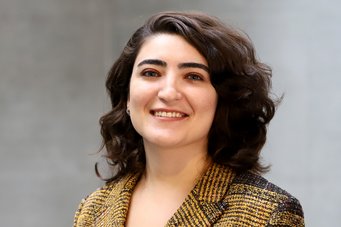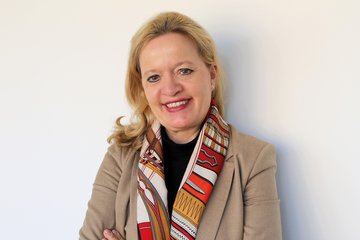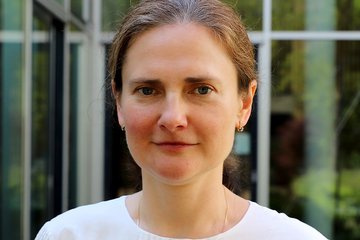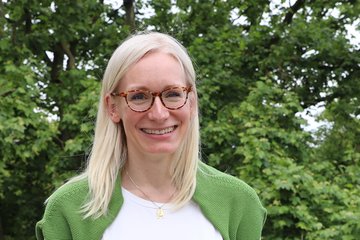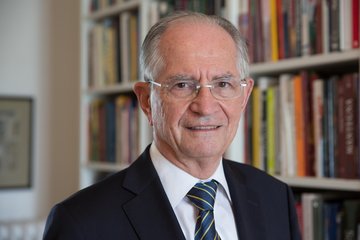
Comparative Studies in Turkish Law
Legal boundaries, transitions, and connections
Turkey has a long history of various kinds of relationships with Europe, many of which go back to the Ottoman Empire, the predecessor state of Turkey. Today, Turkey is one of the European Union’s largest trading partners. It is also an EU candidate country. Turkish law is one of the most important foreign legal systems with which lawyers in Germany and across the EU regularly deal. However, as Biset Sena Güneş, head of the Centre of Expertise on Turkey at the Institute, points out, “The relevance of German and EU law in Turkey is equally significant.” Güneş’s research focuses on private international law, international civil procedural law, family and succession law, and international trade law in Turkey, Germany, and the EU, viewed from a comparative law perspective.
The Centre of Expertise on Turkey was established in 2021, precisely sixty years after the conclusion of the bilateral labour migration agreement between Germany and Turkey. Today, Turkish citizens constitute the second-largest group of non-EU citizens in the EU. The majority of them live in Germany. The Institute has maintained active relationships with Turkish lawyers, including legal scholars and practitioners, for many years. The first meeting to establish the Deutsch-Türkische Juristenvereinigung (German-Turkish Lawyers’ Association) took place at the Institute in 1986, and the two organizations have collaborated closely ever since. Many Turkish legal scholars also come to the Institute each year to conduct legal research.
Connecting through legal research
As the global legal landscape becomes increasingly pluralistic, many lines that may interest legal scholars can now be drawn to Turkey: Turkey is one of the few countries in the Muslim world that operates on a Western-style, secular legal system. When the Republic of Turkey was founded in 1923, a series of Kemalist reforms effectively abolished the existing system of Islamic law, and in line with these reforms, the Turkish Civil Code of 1926, a translation of the Swiss Civil Code, was adopted. Turkish law is still in a highly dynamic phase, partly because of efforts to systematically reform its inventory of laws and statutes in anticipation of eventually acceding to the European Union, or to follow reforms made in the European Countries that influenced the development of Turkish law.
From scholarship into practice
Turkish private law is immensely significant for legal practice in Germany. Given the human tapestry woven by migration between the two countries over the years, German courts are frequently called upon to apply Turkish law, and in turn they often seek the advice of experts in Turkish law. Therefore, one of the most important activities of the Centre of Expertise is to produce expert opinions for the courts in response to court orders for evidence to be taken in litigation. These may call for expertise in any number of distinct areas of law.
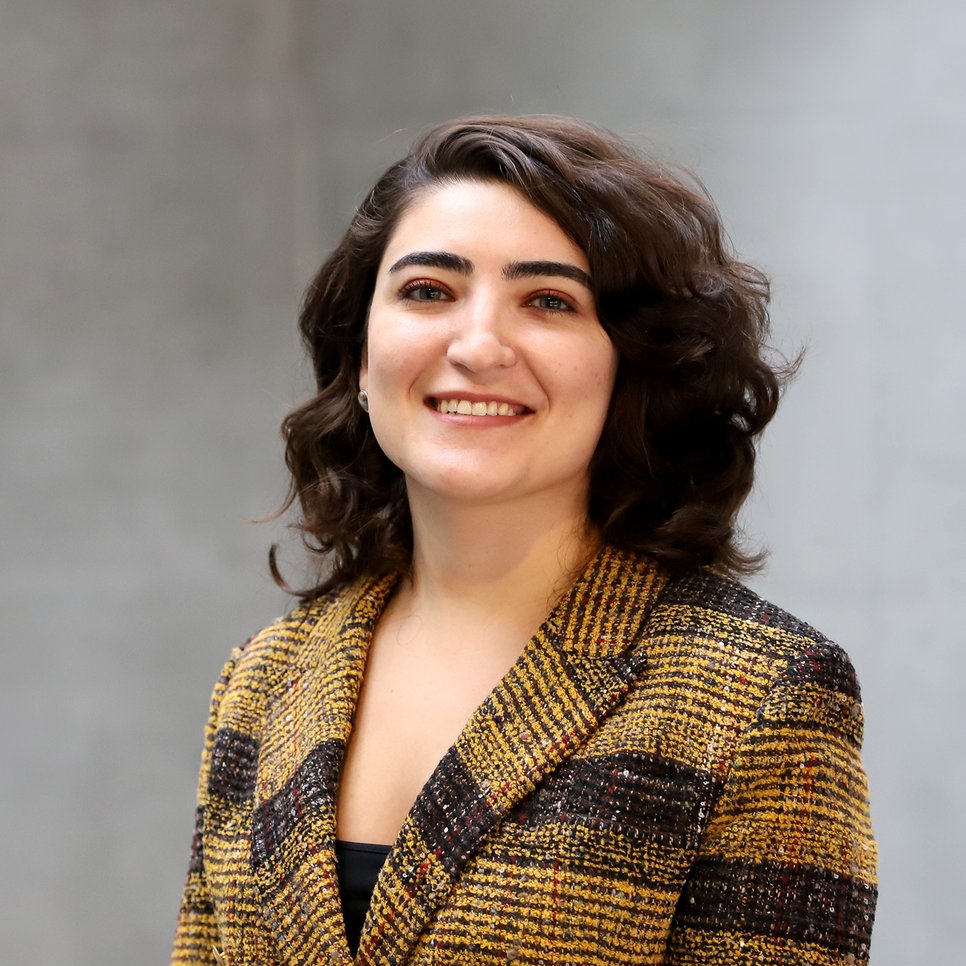
„The major topics of our time are developing in ways that depend very little on national borders, so it’s important for researchers to take a comparative approach when looking for solutions.“
– Biset Sena Güneş –
Family and succession law are two of the most complex, and conflict-prone, areas of law. The court’s questions often involve the validity of a marriage or ask who is entitled to what following a divorce. It is not uncommon for Turkish spouses to divorce in Turkey and then go to court in Germany to contest the distribution of their assets. In succession law, the main recurring questions are whether a will is valid under Turkish law and whether the heirs are liable for the debts of the estate. And then there are the particularly challenging specialist areas of law: Turkish social security law, laws regarding the provision of medical care and the law applicable to companies.
An international forum for current legal issues
Güneş closely follows developments in both Turkish and European Union law and has worked to transform the Centre of Expertise on Turkey into a platform for comparative legal scholarship. In 2022, she launched “Aktuelle Forschung zum türkischen Recht” (Current Research on Turkish Law), an online seminar series featuring presentations by highly regarded Turkish legal scholars. The format consists of a 30- to 40-minute presentation by the speaker, followed by open rounds of questions that invariably lead to lively discussion and in-depth exchanges. This format is intended to appeal to an international set of researchers with an interest in Turkish law, and it has proven to be very popular.
The series’ success is partly due to its openness to a wide variety of topics. The sixteen sessions held thus far have covered diverse topics such as the legal status of decentralized autonomous organizations (DAOs) built on blockchain technology, a comparison of Swiss and Turkish jurisprudence on international arbitration agreements, and amendments to Turkish data protection law in response to the EU’s General Data Protection Regulation (the GDPR).
Versatile expertise
The broad nature of her work reflects the multifaceted profile that Güneş brings to her role at the Institute, having trained as a legal scholar in Turkey, Germany and the UK. Her doctoral thesis focused on a comparative analysis of private international law and international procedural law, examining the conflict of laws and procedural law issues in German-Turkish and Turkish-EU succession cases, with a particular focus on the European Succession Regulation from the perspective of Turkey, a non-EU jurisdiction. Güneş emphasizes that questions of international succession law are frequent: “Succession law cases with international elements are already nothing unusual, and they should be expected to become even more common in the years to come. Around five per cent of EU residents are not citizens of an EU country. Then there are the many EU citizens who hold dual citizenship with non-EU countries, not to mention EU citizens who live outside the EU. Analysing the EU regulations from the perspective of non-EU countries is therefore quite useful for legal practice in general.”
Güneş’s current research topics include family law, particularly with regard to adoption and succession, as well as asylum law and sustainability law, with a focus on business and human rights, climate litigation, and the intersection between global supply and value chains and private international law. “The major topics of our time are developing in ways that depend very little on national borders, so it’s important for researchers to take a comparative approach when looking for solutions,” she says of her work.
Working as a mentor
Two years ago, Güneş also joined the MAXMINDS project, which was funded by the Max Planck Society, and began serving as a mentor, advising students in bachelor’s and master’s programmes who were affected by the earthquake that struck Turkey and Syria early in 2023. She began meeting her mentees online, guiding them towards finishing their studies or informing them about career opportunities abroad. What began as a short-term aid initiative has now grown into MAXMINDS 2.0, an expanded mentoring programme for up-and-coming scholars, now addressed to doctoral students and post-doctoral researchers from crisis regions all over the world. Güneş is already committed to staying involved.
Images
Header graphic:
Bosphorus bridge: © AdobeStock, Natalia
Old building of the Grand National Assembly of Turkey: © Shutterstock, GUL ARI
Portrait Biset Sena Güneş:
© Max Planck Institute for Comparative and International Private Law / Johanna Detering
